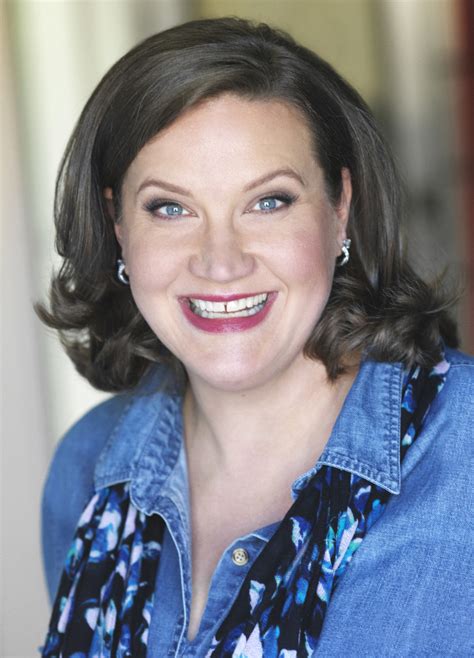A Quote by Val McDermid
I don't think many of us launched ourselves into the world of writing books fully formed.
Related Quotes
She never managed to find herself in these books no matter how hard she tried, exhuming traits from between the pages and donning them for an hour, a day, a week. We think in some ways, we have all done this our whole lives, searching for the book that will give us the keys to ourselves, let us into a wholly formed personality as though it were a furnished room to let. As though we could walk in and look around and say to the gray-haired landlady behind us, "We'll take it."
The burden God places on each of us is to become who we are meant to be. We are most fully ourselves when Christ most fully lives in us and through us. The mother shines brightest with her child in her arms, the father when he forgives his wandering son, and the artist when he or she is drawing attention to grace, by showing the pinprick of light overcoming the darkness in the painting, or the story, or the song. The world knows darkness. Christ came into the world to show us light. I have seen it, have been blinded by it, invaded by it. I will tell its story.
If the book we are reading does not wake us, as with a fist hammering on our skull, why then do we read? So that it shall make us happy? Good God, we should also be happy if we had no books, and such books as make us happy we could, if need be, write ourselves. But what we must have are those books which come upon us like ill fortune, and distress us deeply, like the death of one we love better than ourselves; like suicide. A book must be an ice-axe to break the sea frozen inside us.
Traveling through the world produces a marvelous clarity in the judgment of men. We are all of us confined and enclosed within ourselves, and see no farther than the end of our nose. This great world is a mirror where we must see ourselves in order to know ourselves. There are so many different tempers, so many different points of view, judgments, opinions, laws and customs to teach us to judge wisely on our own, and to teach our judgment to recognize its imperfection and natural weakness.
It is quite beyond me how anyone can believe God speaks to us in books and stories. If the world does not directly reveal to us our relationship to it, if our hearts fail to tell us what we owe ourselves and others, we shall assuredly not learn it from books, which are at best designed but to give names to our errors.
A distinction must be made between that writing which enables us to hold on to life even as we are clinging to old hurts and wounds and that writing which offers to us a space where we are able to confront reality in such a way that we live more fully. Such writing is not an anchor that we mistakenly cling to so as not to drown. It is writing that truly rescues, that enables us to reach the shore, to recover.
Our heroes are simple: they are brave, they tell the truth, they are good swordsmen and they are never in the long run really defeated. That is why no later books satisfy us like those which were read to us in childhood - for those promised a world of great simplicity of which we knew the rules, but the later books are complicated and contradictory with experience; they are formed out of our own disappointing memories.
There are far too many people for us to think about each of them during our short stay on earth—like the thousands of books in a library we haven’t time to read in an afternoon. But this is no excuse to cease browsing. For every now and then, we find that one book that reaches us deep inside and introduces us to ourselves. And, in someone else’s story, we come to understand our own.





































